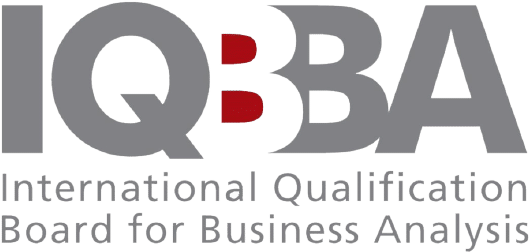Table of Contents
In today’s rapidly evolving business landscape, organisations face a multitude of challenges that require strategic decision-making, process optimization, and innovation. Business analysis has emerged as a vital discipline that enables professionals to understand, analyse, and improve business processes and systems. While traditionally associated purely with the role “Business Analyst”, the applications of business analysis skills extend far beyond that. It holds immense value for professionals across various disciplines, industries, and roles, including executives, sales and marketing managers, product owners, process managers, product managers, and more. Exploring how business analysis skills can be applied in multiple industries, fields, and roles to drive success, and foster innovation is vital for understanding how they can be correctly applied and add true value to organisations.
Understanding Business Context
At the core of effective business analysis lies a deep understanding of the organisation’s overall goals, strategies, and the context in which it operates. Professionals in executive roles can benefit immensely from business analysis skills by gaining a comprehensive view of their organisation’s operations, aligning their decisions with broader objectives, and charting the strategic direction. By understanding the business context, executives can make informed decisions, seize opportunities, and navigate complexities more effectively, ensuring the organisation’s continued and sustained growth.
Identifying Business Needs
One of the key components of business analysis is identifying and defining specific business needs, problems, or opportunities that require attention. Professionals in sales and marketing management roles can leverage business analysis skills to understand customer requirements, market trends, and identify new opportunities. By effectively identifying business needs, these professionals can drive innovation, develop customer-centric strategies, and gain a competitive edge in the market.
Requirements Elicitation and Analysis
Once the business needs are identified, professionals engage stakeholders to elicit requirements for a solution. Through techniques like interviews, brainstorming sessions, and prototyping, Business Analysts gather information about desired functionalities, constraints, and expectations. For example, product owners, who are responsible for defining and prioritising product requirements, can benefit greatly from business analysis skills. By aligning requirements with business goals, product owners can ensure that the solutions meet stakeholder needs and contribute to the overall success of the product.
Stakeholder Management
Effective stakeholder management is a critical aspect of business analysis. Professionals in executive roles, sales and marketing managers, and product owners must collaborate with diverse stakeholders, such as business users, IT teams, and customers. They need to facilitate effective communication, manage expectations, and ensure that the solution meets the needs of all stakeholders. By conducting meetings, workshops, and presentations, professionals can gather feedback, address concerns, and foster stakeholder buy-in, leading to successful outcomes.
Business Process Modelling
Business process modelling is a powerful technique employed by Business Analysts to represent and understand existing business processes. Through tools such as process flow diagrams, swimlane diagrams, and business process models, professionals can visualize workflows, identify bottlenecks, and pinpoint areas for improvement. Process managers play a crucial role in optimizing and streamlining business processes. By applying business analysis skills, process managers can identify inefficiencies, eliminate redundancies, and enhance overall efficiency within their organisations.
Gap Analysis
Gap analysis is a crucial practice in business analysis, comparing the current state of business processes and systems with the desired future state. This analysis helps professionals identify the gaps that exist, and the changes or improvements required to bridge those gaps. Executives, sales and marketing managers, product owners, and product managers can apply gap analysis to align strategies, identify areas for improvement, and prioritise initiatives. By addressing the gaps, professionals can drive organisational growth, enhance customer satisfaction, and gain a significant competitive advantage.
Solution Design and Evaluation
Based on the requirements and analysis, professionals collaborate to design potential solutions. This phase involves creating functional specifications, system architecture diagrams, wireframes, or prototypes that bring the envisioned solution to life. Executives, managers, product owners, and product managers play a crucial role in solution design as they contribute their domain expertise and ensure that the proposed solutions align with strategic goals and customer needs. Through rigorous evaluation against the requirements, professionals can select the most viable solution and drive successful implementations.
Change Management
Business analysis recognises that implementing a solution often requires organisational change. Professionals in executive roles, managers, and product owners work with stakeholders to develop change management strategies, which may include training plans, communication plans, and support systems to facilitate the smooth adoption of the new solution. By effectively managing change, professionals can minimize resistance, maximize the benefits of the solution, and foster a culture of continuous improvement.
Monitoring and Continuous Improvement
After implementation, Business Analysts monitor the performance of the solution and collect feedback from stakeholders. They assess whether the desired benefits are being realized and identify areas that require further optimization. This iterative process ensures ongoing improvement and adaptation to changing business needs. Professionals across various roles and industries can contribute to this phase by providing feedback, sharing insights, and actively participating in the continuous improvement process.
In conclusion, business analysis skills have a broad and profound impact across disciplines, industries, and roles. Executives, managers, product owners, process managers, product managers, project managers, product developers, and various other professionals can leverage these skills to gain a comprehensive understanding of their organisation’s operations, identify business needs, elicit requirements, manage stakeholders, optimize processes, and design effective solutions. By integrating business analysis practices into their workflows, professionals can drive success, foster innovation, and create value for their organisations in today’s complex business landscape. The versatility and applicability of business analysis make it a valuable skill set for professionals seeking to excel in their respective fields and drive organizational growth.

